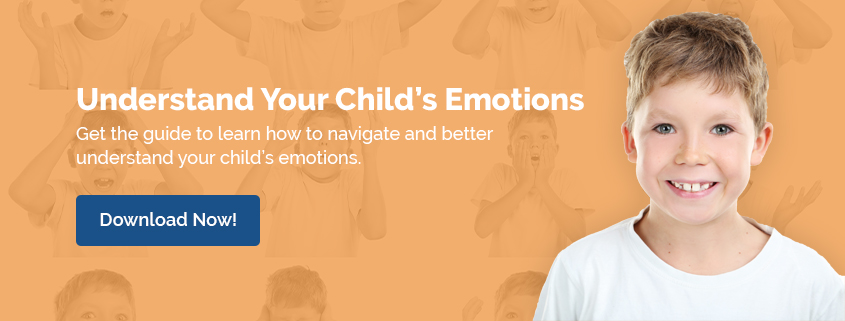How to Nurture Your Child’s Mental Health for a Happier, Healthier Life
If you’re a parent or guardian, chances are that you have worried about your child’s mental health at one point or another. Whether you’ve had concerns about anxiety, depression, poor self-esteem, eating disorders, or other problems, in the end you just want to rest assured that you can positively impact your child’s ability to grow and thrive.
The good news is that many adolescent mental health conditions can be successfully treated, especially when identified early on. The sooner you seek help for your child, the better chance they have to overcome their challenges and avoid more serious issues in the future. Read on to learn more about how to nurture your child’s mental health.
What is Good Mental Health?
The term “mental health” refers to a person’s overall psychological well-being. Mental health is an important part of a person’s overall health and can be affected by various factors, including environment, lifestyle choices, and genetics.
Good mental health is more than just the absence of mental illness. People who are mentally healthy feel content, have self-confidence, are emotionally stable, and can build and maintain healthy relationships.
Good mental health can be a struggle for an adult, let alone an adolescent; achieving this level of self-confidence and calmness is worth the effort, though. In early childhood and adolescence, strong feelings can be overwhelming, which is why it’s important to understand your child’s mental health and help them cope with (and understand) their emotions.
Noticing Children’s Mental Health Problems
As we grow, more and more outside factors begin to affect mental health. School, friendships, and social media all impact a child’s mental health — for better or for worse. Self-care is a good practice to start at a young age to promote good habits that will hopefully follow them into healthy adulthood.
With older children, keeping an eye on their mental health is extremely important, because mental health disorders become more apparent with age. Plus, with age, kids begin to face outside elements like drugs, alcohol, and bullying. Look for signs that your child might need help.
Signs Your Child Needs Support
-
- Feelings of anger and irritability
- Social and family withdrawal
- Bullying
- Changes in weight or eating habits
- Body aches
- Poor hygiene
- Change in sleeping habits
- Drug abuse or risky behaviors
How Can I Help My Child’s Mental Health?
Having a healthy child is so much more than avoiding sickness and injury. Emotional health is just as important as your child’s physical health. (In fact, the two components are so intertwined that mental health issues can lead to physical ailments.)
There are a few things you can do to encourage good mental health in your children while supporting problem-solving and overall wellness.
Communicate Feelings
Teach your child how to communicate their feelings.
One of the most important things you can do is keep the dialogue between you and your child open and honest. This enables them to communicate emotions with you and prevents them from bottling up feelings that are difficult for them to express. If they practice effectively communicating their feelings from a young age, it will follow them into adulthood and help their interpersonal relationships.
Be on the lookout for signs of emotional distress, like increased aggression or mood swings, which can indicate that something more serious might be going on. When this happens, ask yourself if any changes have occurred in your child’s life (like a new school or a friend moving away) that could be contributing factors.
Incorporate Playtime
Play is a crucial component of your child’s development. Play helps your child explore the world around them, allows them to learn and practice social skills, and encourages creativity.
When you play with your child, it allows you to understand how they see and interact with the world. You can get a glimpse into how they process the new ideas that are introduced in their playtime interactions and you can also help them problem-solve. (Remember to keep rules consistent through these interactions.)
In addition to setting aside time to spend with your child, playdates are equally important. Playing with other children helps build strong relationships and new skills, like sharing.
Make Time to Talk
Your child needs you to make time for them. While it can be difficult as a parent to balance work, family, and other obligations, you need to nurture your child’s emotional well-being – make time to chat about the day and set a good example.
Talking about your own emotions helps children learn how to express themselves in a healthy way. For your child to learn the importance of emotional expression, they need to see you talking about your own emotions. Be honest with yourself and let that honesty shine through when you talk with them.
When they express their feelings, pay attention so that they know you are listening. Ask questions and converse with them so that it is a two-way street. Let children know that their feelings matter by allowing them to express themselves using words or another medium, such as art or music.
Understand Your Own Mental Health
The way you handle your own mental health will have a significant impact on your child. If you lose control of your temper, your child may learn to do the same. If you take care of yourself by exercising and eating well, you can encourage those habits in your child, as well. Have your kids help with activities like grocery shopping and cooking to show from an early age that taking care of yourself is important.
You should also pay attention to the way you respond to stress and how that affects your children. If there is fighting between family members, it can profoundly affect childhood development.
Research shows that children who are exposed to constant fighting between parents are more likely to develop behavioral problems and experience difficulties in school. If you set a good example of talking through emotions and problems, children will learn to resolve conflict this way instead. If they witness conflict like fighting, name-calling, and aggression, they will follow suit.
Respond to Emotional Needs
When you and your child are both upset, it can be difficult to keep a level head. But (and this is a big “but”), the most important thing you can do when your child is having a meltdown is to remain calm yourself.
Take a minute to breathe and think before reacting. It’s okay to take five minutes before responding, especially if you don’t have control of your emotions.
When they see that you (their role model) are calm and collected, they are more likely to relax. If their feelings and behavior are validated with your own stressed behavior, this reinforces that their outburst is correct. Show them that problems are resolved when you take a minute and calm down first.
Build Self-Control Through Activity
Even young children can experience strong emotions about things that seem minor or insignificant to adults. Encouraging your child to express their feelings through play is a great way for them to release stored-up emotions. An interest or hobby such as dance, art, music, or sports can give your child a safe emotional outlet.
Validating your child’s emotional experience doesn’t mean you have to agree with what they’re feeling; simply letting them know that those feelings are valid and acceptable can be enough.
Mental Health Problems Do Not Mean Bad Parenting
A child’s mental health problems aren’t necessarily a direct result of your parenting, no matter what you may think. When you begin your journey to improving your child’s mental health, it’s important to set realistic goals and expectations.
A variety of family dynamics and different types of parenting can all produce happy kids, because every child is different. Some children are more sensitive than others. Some have an easier time navigating stress than others. In the end, it’s important to know that many factors affect mental health, including genetics, which has nothing to do with parenting at all!
If you are noticing signs that your child needs help managing their mental health, call Meridian HealthCare today. We offer counseling and other services to help nurture your child’s mental health. Don’t wait; see a difference in your child today.
*If this is an emergency, please call 911 or the suicide helpline at 1-800-273-8255.






